
Emergency Dentistry for Special Needs Patients – Grand Prairie, TX
When Your Loved Ones are in Pain, We Can Help

Because a complete team is involved in treating each of our patients, we aren’t able to provide dental care in the same way other dental offices are. However, if your loved one is in pain, we will work to see them as soon as possible. If they are experiencing discomfort like a toothache, have knocked out a tooth, or have lost a restoration, we can help get their oral health back on the right track before additional issues arise. Just call us to schedule an appointment for emergency dentistry for special needs patients in Grand Prairie, TX!
Why Choose Disability Dental Services for Emergency Dentistry for Special Needs Patients?
- Full In-House Anesthesia Team
- Experienced Dental Team
- Accommodating & Caring Dentistry
How We Treat Dental Emergencies
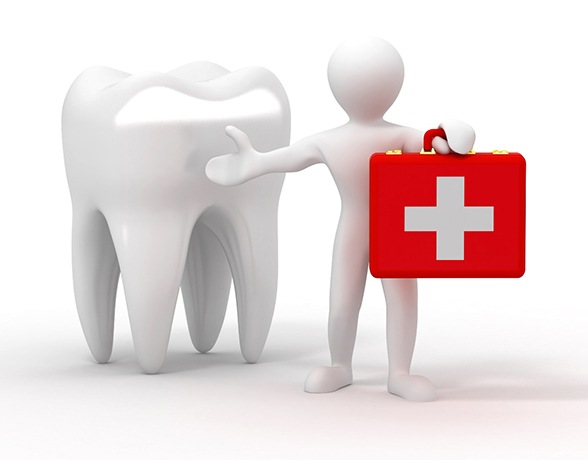
- Schedule an Appointment: When you get in touch with our team to report a dental emergency, we’ll ask about your loved one’s situation. We’ll make arrangements to see them as soon as we can, but in the meantime, we might give you some instructions for at-home care.
- Emergency Exam: We’ll make sure that your loved one feels as safe and comfortable as possible once they get to our office. Our team will carefully evaluate their symptoms and (if necessary) take X-rays in order to gauge how severe the situation is.
- Review Findings: We’ll explain to you and your loved one what the problem is based on the results of our examination. Then we’ll outline your options for treatment. Don’t be afraid to ask about the associated costs or how long the treatment will likely take.
- Get the Care Your Loved One Needs: Once we have a plan in place, we won’t lose any time in carrying out your loved one’s customized emergency treatment.
The Most Common Dental Emergencies
If you want to keep your loved one’s smile safe, you need to be able to recognize when emergency dental care is needed. There are many situations that can be considered dental emergencies; please contact us as soon as you can if your loved one is experiencing any of the following.
Understanding the Cost of Dental Emergencies

We don’t want to add to your list of worries during a dental emergency, so we will be transparent about how much you can expect to pay for the services we recommend. An estimate will be provided before any decisions need to be made. Many of the services that are often performed as part of emergency dental care are typically covered under dental insurance; we can review your coverage for you and file the paperwork as needed.
Keys to Preventing Dental Emergencies
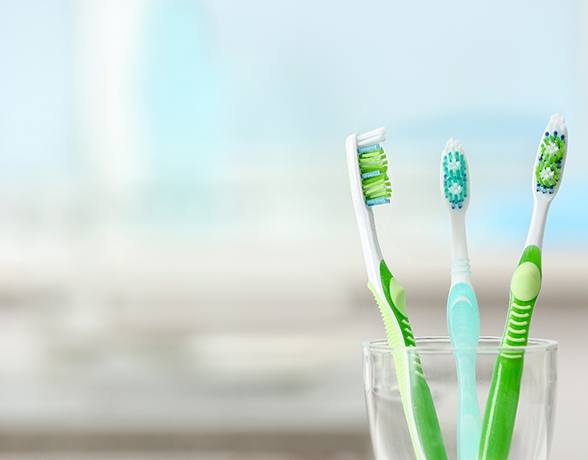
Although it’s impossible to completely avoid dental issues, there are some ways that you can help reduce your loved one’s risk of an unexpected trip to our dental office:
- Help them maintain good oral hygiene at home
- Ensure they stay hydrated with water
- Make sure they receive timely treatment for small oral health problems
- Purchase healthier, less processed foods and snacks that don’t contain as much sugar or carbohydrates
Minor Oral Surgery
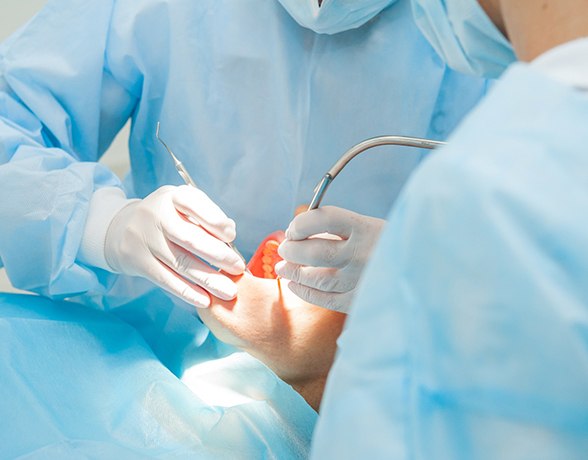
For the comfort of our special needs patients and the convenience of their caregivers, Disability Dental Services strives to provide most dental services in our Dallas location. We can perform minor oral surgical procedures, such as extractions, root canals, and gum reduction in the comfort of our Dallas dental office. Dr. Ford is a certified anesthesiologist, and we have other anesthesiologists on our team. To keep patients comfortable and calm during surgical procedures, we can administer oral sedation, oral conscious sedation, or IV sedation.
Root Canal Therapy
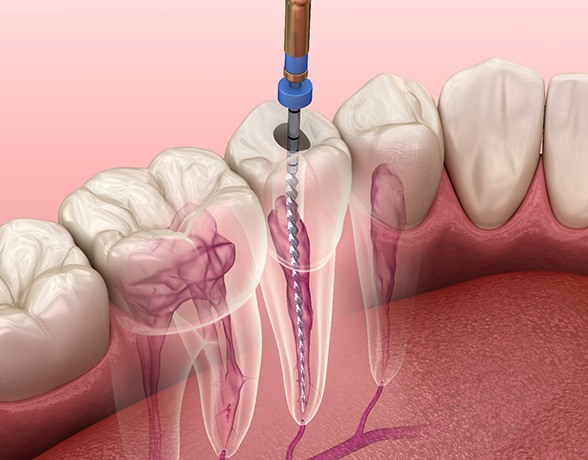
If your family member is experiencing a painful toothache caused by an infection within the inner chamber of their tooth, we may recommend root canal therapy. During this procedure, we’ll completely numb the area that we’ll be treating and place your loved one under sedation to help them feel more comfortable. Then, Dr. Ford will access the inner chamber of their tooth, remove the infected pulp that’s causing their pain, and rebuild the tooth’s structure using a putty-like substance called gutta-percha. Finally, we’ll protect their tooth by capping it off with a customized, natural-looking dental crown.
Learn More About Root Canal Therapy
Tooth Extractions
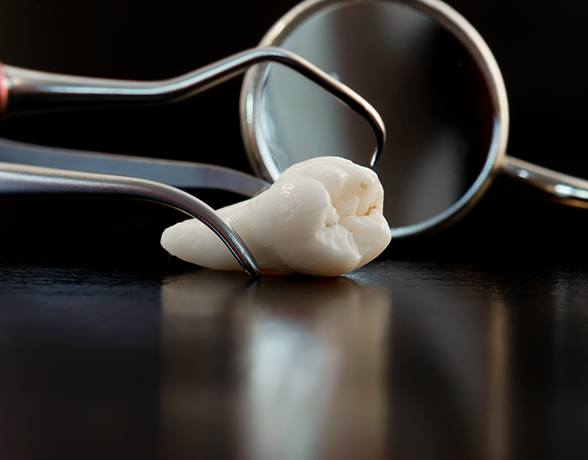
We understand that there’s no substitution that can compare to natural teeth, which is why we never recommend extracting a patient’s tooth unless it’s absolutely necessary for them to maintain good oral health. If your loved one does require an extraction, we can easily restore their smile with a customized prosthetic that will look exactly like their natural teeth, allowing them to smile with confidence.
Learn More About Tooth Extractions
Wisdom Teeth Extractions
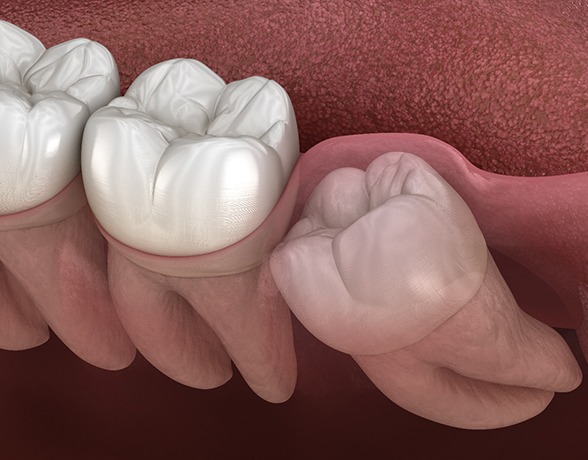
Wisdom teeth get their name because they typically grow in between the ages of 16 and 25. Not every third molar needs to be removed, but in cases where it could negatively impact oral health or the alignment of their teeth, this procedure may be necessary. Dr. Ford and our team at Disability Dental Services can safely and painlessly remove your loved one’s wisdom teeth if there’s not enough room in their jawbone for them to grow in, it’s causing them severe discomfort, or it could put them at an increased risk of developing an oral infection.
Dental Emergency FAQs
Should I Take My Loved One to the Emergency Room First for Dental Emergencies?
While this might seem like the best plan during an unsettling situation, the majority of emergency rooms will not be fully equipped to treat dental emergencies. This is mostly because there isn’t always a dental professional on the team to help with these circumstances. That’s why, if your loved one is experiencing an urgent situation with their oral health, it’s best to take them directly to their dentist’s office for emergency treatment. That said, if they have serious lacerations to the mouth or face, are having trouble swallowing or breathing, or have a fractured/dislocated jaw, then you should head straight for the local ER instead.
Will a Toothache Go Away on Its Own?
If your loved one is struggling with a toothache, you should never expect it to go away by itself. Even if they don’t feel discomfort anymore, this can sometimes mean the inner nerves in the tooth have already been too damaged to register pain. The best thing to do would be to schedule an appointment with our team so that we can address the underlying issue before it worsens. We’ll thoroughly evaluate their situation and detect the root cause of the problem to determine the proper solution.
What Does Chronic Bad Breath Mean?
Bad breath (or halitosis) is a fairly common issue that most people experience in their lifetime. That said, some might struggle with this problem much longer throughout the day instead of just in the morning or after eating a meal. In many cases, chronic bad breath can be an indication of an underlying complication that just won’t be resolved with things as simple as mouthwash, mints, or oral hygiene. If your loved one is having issues with constant halitosis and it doesn’t go away after several days, make sure to contact our team for help. We’ll be glad to evaluate their mouth and address any underlying problems we might detect so that they can return to enjoying their fresh smile.
What Should My Loved One Have in Their Emergency Dentistry Kit?
While it’s always good to practice great oral hygiene as well as preventive measures, dental emergencies can still happen at any moment. That’s why you’ll want to help your loved one remain prepared for such cases by keeping an emergency dentistry kit nearby when the situation calls. Their kit should generally include:
- Anti-inflammatory medication like ibuprofen
- Cotton balls
- A small sealable container for restorations or teeth
- Ice pack
- Petroleum jelly
- A topical anesthetic gel like Orajel
- Floss
- Denture adhesive
- Their dentist’s contact information
I Need a Dentist for a Person with Disabilities I Need a Checkup & Cleaning I am Afraid of the Dentist I Have a Cavity or Broken Tooth I am Missing One or More Teeth View All Our Services